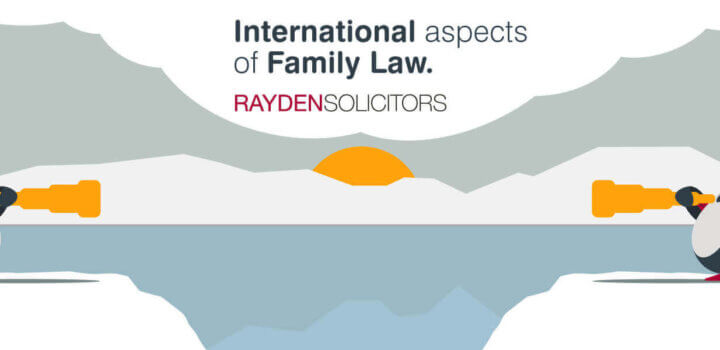What is a litigant in person?
A litigant in person is any party to legal proceedings who is not legally represented; i.e. does not have a solicitor or barrister acting on their behalf and is self-representing within court proceedings.
What is a QLR?
A QLR is a qualified legal professional who practises family law and has the relevant training to undertake advocacy in court.
A QLR is either arranged by a party to court proceedings issued by the Family Court or appointed by the Family Court in specific and limited circumstances, usually where domestic abuse is alleged or proven as having taken place by one of the parties to the proceedings.
The QLR’s role is limited. Their purpose is to ensure that court proceedings are fair to both parties and their role is to cross-examine witnesses where a party who is a litigant in person is prohibited from doing so (see further below in relation to the circumstances where the prohibition of cross-examination applies). They do not to provide general legal advice to a party and they are not responsible to the party themselves.
The aim of using a QLR is to avoid a victim of domestic abuse from enduring questioning from their abuser or alleged abuser (and from having to question their abuser or alleged abuser) in a courtroom setting and to prevent their evidence from being distorted as a consequence.
When are litigants in person entitled to use a QLR?
QLRs will only be appointed in limited circumstances and the following must apply:
- There must be court proceedings issued by the Family Court;
- The proceedings must have been issued by the court after 22 July 2022 (when the Domestic Abuse Act 2021 came into force as law in England and Wales);
- There must be a prohibition of cross-examination by either party to the proceedings in accordance with the Domestic Abuse Act 2021; and
- A court hearing is listed which requires parties to give evidence including ‘cross-examination’.
It follows that where parties are legally represented, a QLR will not be appointed.
Prohibition of cross-examination
The Domestic Abuse Act 2021 introduced the prohibition of cross-examination of parties where one has experienced domestic abuse perpetrated by the other or where there is a risk of such abuse. The practical effect of the prohibition is that litigants in person cannot cross-examine one other in court proceedings issued by the family court where domestic abuse is alleged or has taken place.
Domestic abuse is defined under Section 1 of the Domestic Abuse Act 2021 as behaviour between two people over 16 who are personally connected to each other (i.e. they are either married, civil partners, engaged, have been in an intimate relationship or share a child together) and consists of any of the following: physical or sexual abuse, violent or threatening behaviour, controlling or coercive behaviour, economic abuse or psychological, emotional or other abuse (either as a single incident or as a course of conduct).
There is an automatic prohibition in certain circumstances and if none of these applies then the court has the option to direct the prohibition instead.
Automatic prohibition
The automatic prohibition applies where:
- a party has been charged, convicted or given a caution in relation to a specified offence;
- a protective injunction that was made on notice is in force; or
- specified evidence as to domestic abuse has been adduced in family proceedings.
If none of the above applies, then the court can direct the prohibition instead where the following two conditions are met:
- The quality condition – this is met if a party’s evidence is likely to be diminished (in terms of completeness, coherence and accuracy) if cross-examination is conducted by another party and would be improved if the court directed the prohibition; and
- Significant distress condition – this is met if the cross-examination by another party would likely cause significant distress and that distress is likely to be more significant than would be the case if the witness was cross-examined by someone else.
In determining the above, the court must consider the views of both parties, the nature of the questions to be asked, the behaviour of either party where a finding of fact has been made by the court, the behaviour of any party at any stage of the proceedings and the relationship between the parties.
How does a litigant in person obtain a QLR?
If either party requires a QLR within court proceedings, this should be raised with the court at the earliest opportunity for consideration.
If a prohibition on cross-examination applies, then the court can direct for a QLR to be appointed on its own motion or can do so following an application being made by a party to the proceedings who requires one.
If a party is seeking a direction for the prohibition of cross-examination, they must complete either a form ES740 (if the party is making allegations of abuse) or a form EX741 (if the party is accused of abuse). These forms explain the reasons why the party is asking the court to prohibit cross-examination by the other party. There is no court fee payable to file these forms.
If the automatic prohibition applies or the court directs that it applies and there is no other satisfactory means of cross-examination, the court will invite the party to the proceedings to arrange for a QLR to act for them by a certain date. If no arrangements are made by the party, the court can appoint a QLR from a court-maintained list if it deems that this is in the interests of justice.
Once appointed, the QLR will review the relevant documents in the case, meet with the party on behalf of whom they are cross-examining to understand their case, prepare cross-examination questions which relate to the case outcome and prepare a position statement to identify the issues before the court. They will then attend the relevant parts of the hearing, as directed by the court, and conduct the cross-examination.
It is important to note that the QLR will not give a party legal advice and cannot assist with preparing court documents or with complying with court directions prior to the hearing. Their limited role is focused around undertaking cross-examination on behalf of a party.
The costs and expenses of the QLR are not met by parties, but from central funds.
Conclusion
The role of a QLR is a fairly new one established following the implementation of the Domestic Abuse Act 2021. The main purpose of the introduction of the QLR is to avoid a victim of domestic abuse from being cross-examined by, or having to cross-examine, their abuser or alleged abuser on the basis that this may result in a distortion of the evidence before the court. QLRs have a very limited role and are not intended to replace an instructed legal representative who acts on behalf of a party to the legal proceedings. Their function is to assist in achieving a fair administration of justice but they do not provide legal advice and are not responsible to the party on behalf of whom they are cross-examining.
If you would like to discuss any of the issues raised in this article further, please do not hesitate to contact one of our expert family lawyers.














